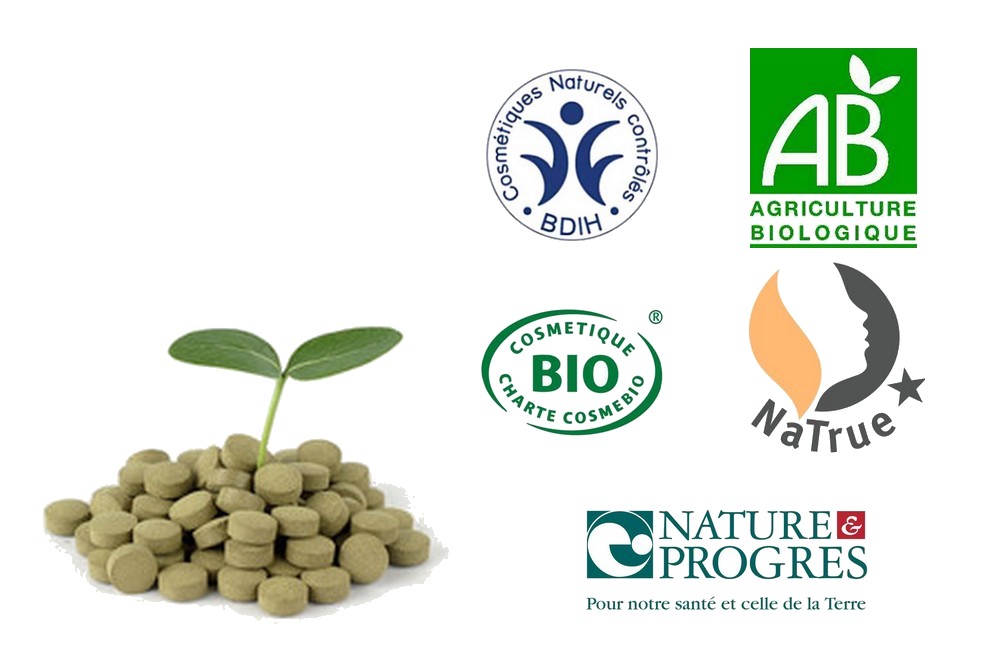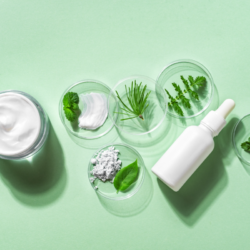Organic farming was born from the initiative of agronomists, doctors, farmers and consumers who, in the 1920s, generated new currents of thought based on ethical and ecological principles, and initiated an alternative mode of agricultural production favoring tillage, autonomy and respect for natural balances. As the 1970s approached, significant sociological changes largely influenced the development of organic farming. In 1981, the French public authorities officially recognized organic farming. A National Commission is created, responsible for the organization and development of organic farming in France and the approval of specifications. Since the 1980s, however, organic labels have continued to develop,
What is an organic label?
An organic label indicates that the product meets a set of criteria defined in a specification. certification is carried out by a private or public body.
It guarantees:
- The absence of pesticides
- The almost non-existent presence of GMOs
- A strong majority of natural substance. An organic product is mainly composed (>50%) of agricultural ingredients, 95% of which must come from organic farming. Water and salt are not taken into account in the calculation of the percentage. The remaining 5% are agricultural ingredients listed in Annexes IX of Regulation (EC) No. 889/2008. Components of non-agricultural origin are < 50% and must be included in the list of authorized additives in Annex VIII of Regulation (EC) No 889/200. Please note that certain additives are marked with an asterisk because they are of agricultural origin and should be counted in the proportion of ingredients of agricultural origin.
- Quality materials that respect the environment
- Reasoned use of natural resources respecting the cycle of the seasons
- Respect for species and animals
- A reduced and reasoned use of chemical products by imposing a quantity of chemical products not to be exceeded.
- A thoughtful and reasoned production favoring recycling both in the production method and in the materials chosen.
- Quality research
- Special attention to the health, social and economic conditions of all workers
- An effort of transparency, in particular on the traceability of products
What are the differences between organic labels?
Today, it is a European regulation that defines the specifications and the charter to be followed, which is essentially based on the fact of not using synthetic chemicals. In France, we mainly find the AB label which respects this charter For the other labels, such as Nature & Progrès, this charter is insufficient, “The official definition which has been adopted is limited to a technical dimension which does not question industrialization organic, nor its social and ecological repercussions,” says Nature & Progrès in the preamble to its charter.
Focus on some labels:
– Label AB :
Means Organic Farming. Certified by the ECOCERT control and certification body itself, it obtains its aggregation by the French Ministries of Agriculture and Fisheries, Economy, Finance and Industry to guarantee:
- The ban on chemical pesticides
- The ban on post-harvest chemical treatment
For farm animals:
- A diet without chemical pesticides and mainly composed of cereals. However, this feed does not necessarily occur on the farm: it can come from other organic farms in the same region.
- A ban on traces of GMOs beyond the 0.9% allowed in the event of accidental contamination.
- Limited use of veterinary treatments and medications. For example, laying hens can receive a maximum of three antibiotic treatments per year, broilers only one.
- Animal welfare guaranteed by minimal space and access to the outdoors.
- The new regulation authorizes the mix, in other words the same farm can produce organic and non-organic.
– Nature & Progress Label:
Association of consumers, farmer-producers and artisan processors founded in 1964. Nature & Progrès manages the private certification body of the same name. The Nature & Progrès label is one of the labels with one of the strictest charters, it goes beyond the European charter. It guarantees:
- Encouragement of small farms
- A total conversion of the farm to organic
- A place of production far from any form of pollution taking into account the materials used for the structures (concrete and metal structures are not recommended, local materials are encouraged)
- Promote renewable energies
- Strict control over animals raised with respect (small herd, dehorning prohibited, larger open air space, control over animal medication), with 100% organic food certified Nature & Progrès
- The total ban on the use of chemical substances of any kind
- Limitation of GMO rate to 0.1%
- Respect for seasonality
- Favor a short circuit
- Full transparency
– BDIH label:
German Federal Association of Commercial and Industrial Companies for Medicines, Dietetic Products, Food Supplements and Body Care, created in 2001. It is the association that issues the “Controlled Natural Cosmetics” label, the specifications of which list 690 authorized components. out of the 20,000 that exist. To use the logo, however, the brand must have at least 60% of these products labeled BDIH, the specifications are very precise and very strict. It guarantees:
- Vegetable raw materials from wild harvests certified Organic Agriculture
- The total ban on petroleum by-products (paraffin, oil and mineral wax, etc.)
- The total ban on silicone as well as synthetic perfume and dyes
- The use of natural preservatives or those proven to be harmless and non-polluting
- A total ban on animal testing
- The total ban on GMOs
- The respect of environment
- Full transparency
– The Cosmebio label :
Concerning cosmetics, issued by ECOCERT, it respects the European charter to guarantee:
- 100% of the ingredients used are of natural origin
- A non-polluting transformation process
- Recycled and/or recyclable packaging
- The materials are from fair and responsible trade
- Respect for the environment and biodiversity
There is also another Cosmebio Eco label, which is less demanding than this one.
– The Natrue label:
Sets high standards for defining the naturalness of cosmetic products. the Natrue Label on packaging certifies that the product meets a strict standard, but also that it has been subjected to a reliable certification process, carried out by independent certification bodies. These are themselves subject to a rigorous accreditation process by Natrue’s partner, IOAS . To have the label, 75% of the brand’s products must be certified as “natural cosmetics”, “natural cosmetics – partly organic” or “organic cosmetics”. It guarantees:
- 100% of the raw materials used are natural, organic and unmodified
- Processed substances are always obtained from natural substances.
- Natural surfactants
- The total ban on petroleum by-products
- Respect for the environment, biodiversity and sustainable development
- The ban on silicones
- The use of natural fragrances
Why favor your health products with an ORGANIC label?
Whether for your food, your cosmetic products, or for your health products, consuming ORGANIC is the guarantee of using products formulated mainly with natural raw materials or natural origin, essentially from Organic Farming, rich in vitamins, minerals, essential fatty acids…
The ORGANIC label offers the assurance of a production method that preserves the environment. the ingredients used come from an agriculture that excludes any use of pesticides, GMOs (although some labels accept a rate of up to 0.9%), weed killer, chemical fertilizers…
Organic cosmetics also use simple and non-polluting transformation processes such as maceration, cold pressing, etc. The packaging used is entirely biodegradable and only ingredients from animal production which have no impact on the health of the animals are allowed (like honey).
Consuming organic products goes well beyond the health aspect, it is also a civic act. It means adopting responsible and beneficial consumption both for the planet and for our health. It is a commitment to support agriculture that respects the environment, without chemicals that poison us, it is a commitment to respect and protect animals that are mistreated and relegated as being a simple consumable “thing” and not as living beings that are part of our environment and our balance.
Married





